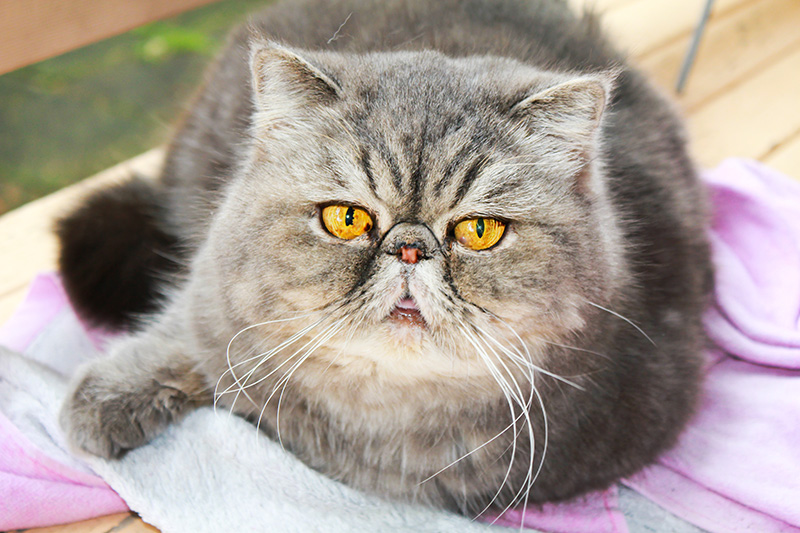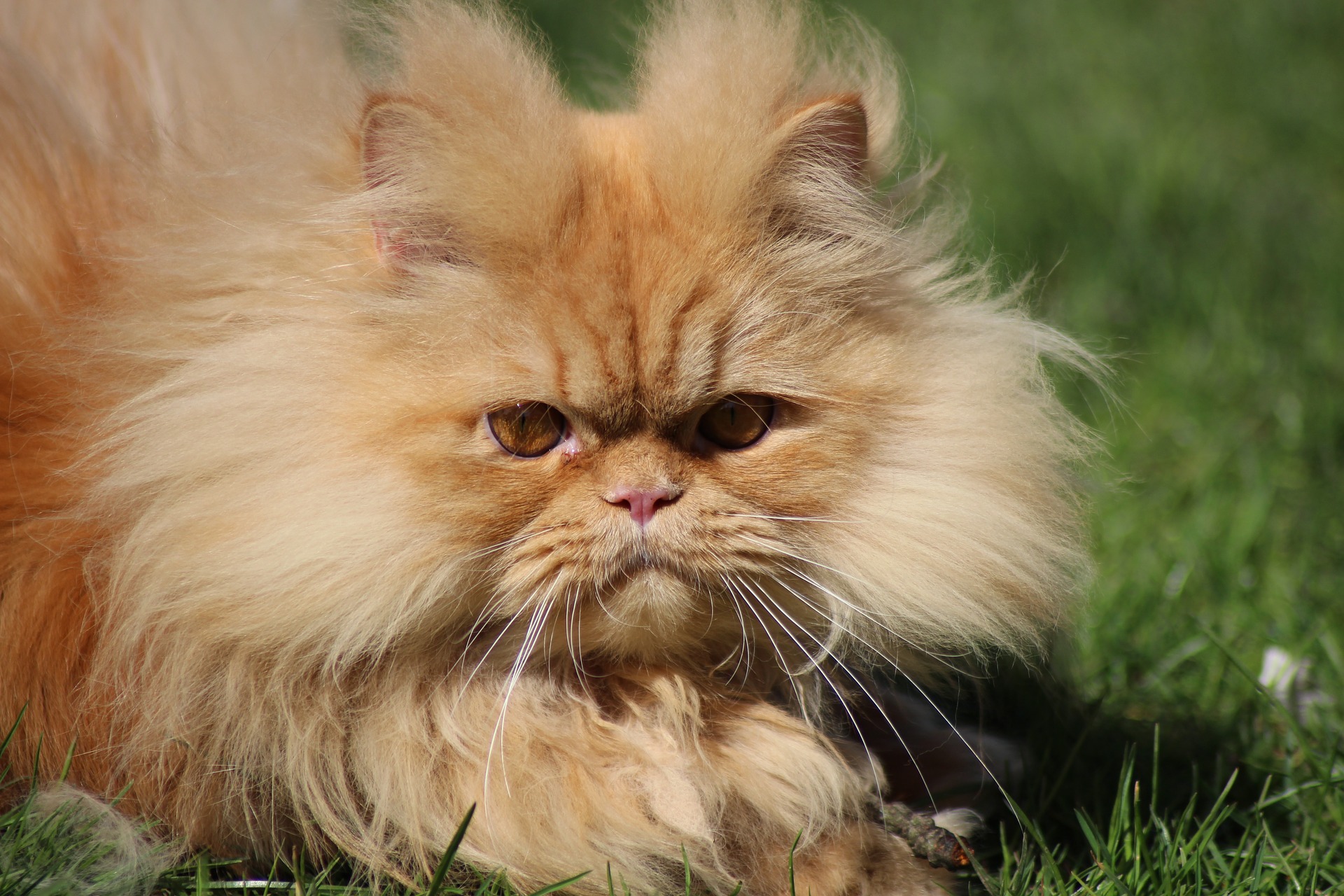So, you have a Persian cat or you’re interested in learning more about them? Well, you’ve come to the right place! In this article, we’re going to dive into the common health conditions that Persian cats may face. From their luscious coats to their adorable smooshed faces, Persian cats have unique characteristics that make them incredibly popular pets. However, just like any other breed, Persian cats can be prone to certain health issues. We’ll discuss these conditions in detail and provide you with valuable information to help you better take care of your furry friend.
If you’re curious to learn more about the common health conditions in Persian cats, you’re in luck! In the full article, we will explore these conditions in depth, providing you with important insights and tips on how to recognize the signs, prevent them, or seek proper treatment. Whether you already own a Persian cat or are considering getting one, it’s essential to be aware of the potential health issues they may face. So, stay tuned and get ready to become a Persian cat health expert!
Common Health Conditions in Persian Cats
Overview of Persian Cats
Persian cats are known for their luxurious, long coats and distinctively flat faces. These adorable felines have been bred for their unique appearance and gentle temperament. While they make excellent companions, it’s important to note that Persian cats are prone to various health conditions. This article will explore some of the most common health issues that affect Persian cats, as well as provide valuable information on how to keep your furry friend happy and healthy.
Understanding the Importance of Health
As a responsible cat owner, it’s crucial to prioritize the health and well-being of your Persian cat. By understanding the importance of maintaining good health, you can take proactive measures to prevent and manage potential health issues. Regular veterinary check-ups, proper nutrition, and grooming practices are essential for keeping your Persian cat in optimal health.
Identifying Common Health Conditions
While Persian cats are generally healthy creatures, they are predisposed to certain health conditions. It’s important to be aware of these conditions and keep an eye out for any symptoms or signs of discomfort. Some of the most common health issues in Persian cats include respiratory disorders, skin problems, eye conditions, urinary tract issues, digestive system disorders, dental health problems, and genetic diseases.
Proper Nutrition for Persian Cats
Providing your Persian cat with a well-balanced and nutritious diet is crucial for their overall health and well-being. These cats have specific dietary needs due to their unique body structure and susceptibility to certain health conditions. Ensure that their diet includes high-quality protein, adequate moisture, and essential vitamins and minerals. Avoid feeding them human food, as it can be harmful to their health.
Grooming and Hygiene Practices
The long, luxurious coat of Persian cats requires regular grooming to prevent tangling and matting. Brushing their coat daily helps remove loose hair and reduces the risk of hairballs. Additionally, it’s essential to keep their eyes clean and free from tear stains by gently wiping them with a damp cloth. Keeping their ears clean and nails trimmed is also important for their overall hygiene.
Regular Veterinary Check-ups
Regular visits to a veterinarian are vital for maintaining the health of your Persian cat. A qualified veterinarian can monitor their overall health, provide vaccinations, and perform necessary tests to detect any potential health issues early on. They can also provide guidance on preventive care and recommend suitable treatments if any health concerns arise.
Respiratory Disorders in Persian Cats
One of the most common health issues in Persian cats is respiratory disorders. Their shortened nasal passages and flat faces make them susceptible to breathing difficulties. Conditions such as brachycephalic airway syndrome and upper respiratory infections can cause symptoms like snoring, wheezing, and difficulty breathing. Seeking prompt veterinary attention and providing a clean and dust-free environment can help manage these respiratory issues.
Skin Issues and Allergies
Persian cats are prone to various skin issues, including allergies and dermatitis. Their long, dense fur can trap allergens and irritants, leading to itching, redness, and hair loss. Regular grooming and keeping their living environment clean can help alleviate these skin problems. If allergies are suspected, your vet may recommend an elimination diet or allergy testing to determine the specific allergens affecting your cat.
Eye Problems and Care
Persian cats are known for their large, expressive eyes, but they are susceptible to certain eye conditions. Excessive tearing, eye discharge, and squinting may indicate issues such as conjunctivitis, corneal ulcers, or cherry eye. Regular eye cleaning with a veterinarian-approved solution and regular check-ups can help detect and manage these eye problems. If you notice any abnormalities or persistent eye issues, seek veterinary care immediately.
Urinary Tract Conditions
Urinary tract conditions, such as bladder infections and urinary blockages, are common in Persian cats. Factors such as their specific diet, limited water intake, and anatomical differences can contribute to these issues. Signs of urinary tract problems include frequent urination, blood in the urine, and straining to urinate. It’s essential to provide access to fresh water, encourage hydration, and consult with a veterinarian if any urinary issues arise.
Digestive System Disorders
Persian cats are also prone to digestive system disorders, including gastrointestinal inflammation and irritable bowel syndrome. These conditions can cause symptoms such as diarrhea, vomiting, and loss of appetite. Feeding a high-quality and easily digestible diet, avoiding sudden dietary changes, and providing a stress-free environment can help manage these digestive system issues. If symptoms persist or worsen, consult with your veterinarian for diagnosis and appropriate treatment.
Dental Health in Persian Cats
Maintaining good dental health is essential for the overall well-being of your Persian cat. These cats are prone to dental issues such as periodontal disease and tooth decay. Regular tooth brushing, dental treats, and annual dental cleanings performed by a veterinarian can help prevent these dental problems. A healthy mouth contributes to better overall health and can prevent potential complications in the future.
Genetic Diseases and Breeding Concerns
Persian cats are predisposed to certain genetic diseases due to their selective breeding. Polycystic kidney disease (PKD), hypertrophic cardiomyopathy (HCM), and progressive retinal atrophy (PRA) are among the genetic conditions that can affect Persian cats. If you plan to breed Persian cats, it’s crucial to perform genetic testing to ensure the health of the offspring. Responsible breeding practices can help reduce the prevalence of these genetic diseases.
Conclusion
Persian cats are beautiful, affectionate companions that require special care to maintain their health and well-being. By understanding the common health conditions that affect Persian cats and implementing appropriate preventive measures, you can ensure a happy and healthy life for your furry friend. Regular veterinary check-ups, proper nutrition, grooming practices, and a clean living environment are all key factors in keeping your Persian cat in optimal health. Remember, early detection and prompt treatment are essential in managing any potential health issues that may arise.
Common Questions about Persian Cats:
-
How often should I groom my Persian cat?
- Grooming should be done daily to prevent matting and tangles in their long coats.
-
What type of diet is best for Persian cats?
- Persian cats require a diet that is high in protein, moisture, and essential nutrients. It’s best to consult with your veterinarian to determine the most suitable diet for your cat.
-
How can I prevent urinary tract infections in my Persian cat?
- Providing access to fresh water, encouraging hydration, and maintaining a clean litter box can help prevent urinary tract infections.
-
What are the signs of dental problems in Persian cats?
- Signs of dental problems include bad breath, difficulty eating, drooling, and swollen gums. Regular dental check-ups and tooth brushing can help prevent these issues.
-
How often should I take my Persian cat to the veterinarian?
- Regular veterinary check-ups should be scheduled at least once a year to monitor the overall health of your Persian cat.
-
Are Persian cats prone to allergies?
- Yes, Persian cats can be prone to allergies, particularly to environmental allergens such as pollen and dust. Regular grooming and keeping the living environment clean can help alleviate allergies.
-
Can Persian cats develop eye problems?
- Yes, Persian cats are prone to eye problems such as conjunctivitis, corneal ulcers, and cherry eye. Regular eye cleaning and routine veterinary care can help manage these issues.
-
Are Persian cats prone to respiratory problems?
- Yes, Persian cats can experience respiratory issues due to their flat faces and shortened nasal passages. Conditions such as brachycephalic airway syndrome and upper respiratory infections can cause breathing difficulties.
-
What genetic diseases are common in Persian cats?
- Persian cats are predisposed to genetic diseases such as polycystic kidney disease (PKD), hypertrophic cardiomyopathy (HCM), and progressive retinal atrophy (PRA).
-
Can I breed my Persian cat without genetic testing?
- It is highly recommended to perform genetic testing before breeding your Persian cat to ensure the health of the offspring. Responsible breeding practices can help reduce the prevalence of genetic diseases.

